Table of Contents
Prime Ministers of India
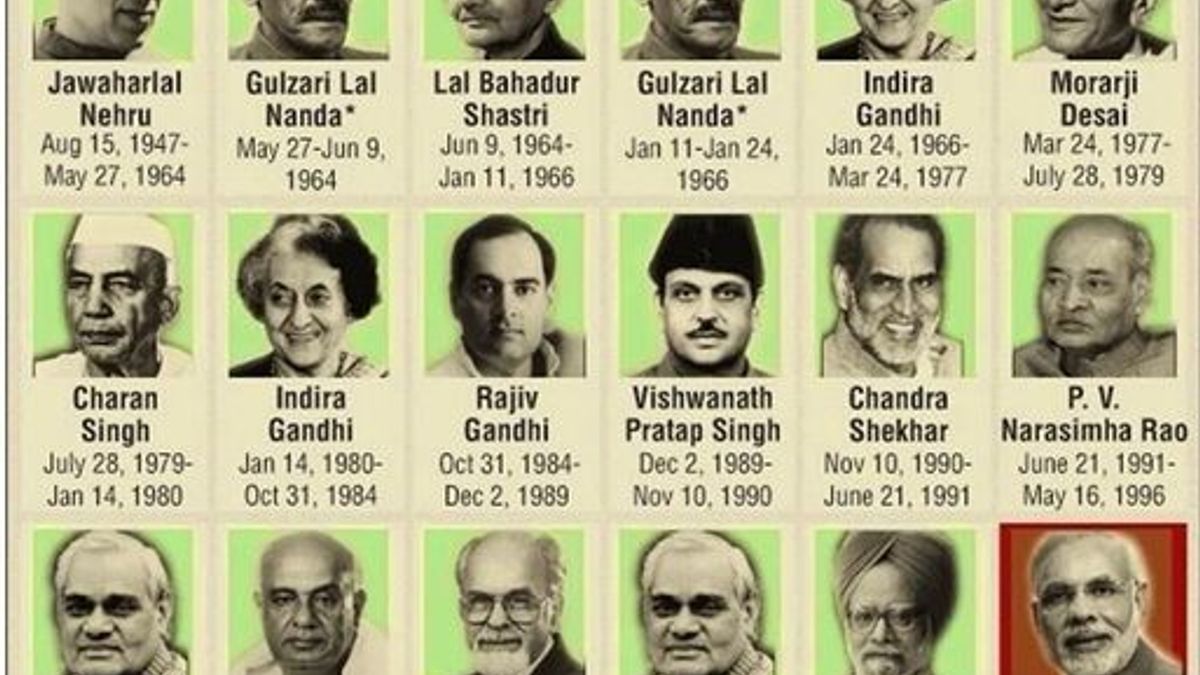
- Chandra Shekhar (1990-1991)
- P. V. Narasimha Rao (1991-1996)
- Atal Bihari Vajpayee (1996, 1998-2004)
- H. D. Deve Gowda (1996-1997)
- Inder Kumar Gujral (1997-1998)
- Dr. Manmohan Singh (2004-2014)
- Narendra Modi (26th May-incumbent)
“List of Prime Ministers of india (1990-2023) and their journey”
Chandra Shekhar (1990-1991)
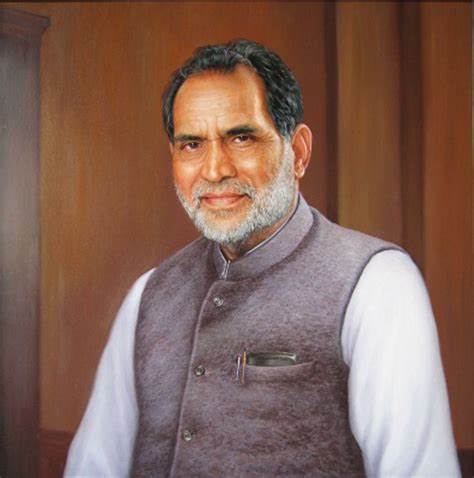
Chandra Shekhar (17 April 1927 – 8 July 2007) was an Indian lawmaker who filled in as the 8 State leader of India from 1990 to 1991. He began his political career as a member of the socialist Samyukta Socialist Party (SSP) and later joined the Janata Dal, a regional political party. He rose to prominence as a leader of the socialist movement in India, and was a Member of Parliament for several terms, serving as the leader of the opposition in the Lok Sabha (lower house of Indian parliament)
In 1990, after the resignation of Prime Minister V.P. Singh, Chandra Shekhar became the Prime minister, leading a minority government with the support of the Congress party. He faced many challenges during his tenure, including political instability and economic difficulties. He also had to deal with the separatist movements in Punjab and Jammu and Kashmir. He attempted to negotiate a peaceful resolution to the issue of Punjab but was unable to reach a lasting solution.
Despite his efforts, his government was criticized for its lack of progress on economic reform and for its inability to address rising communal tensions. After losing a vote of no-confidence in the Lok Sabha, he resigned as Prime Minister in 1991.
After his resignation, Chandra Shekhar continued to be active in politics and served as a Member of Parliament for several more terms. He also formed his own political party, the Samajwadi Janata Party, but it failed to gain significant support. He died on 8 July 2007 due to multiple organ failure.
P. V. Narasimha Rao (1991-1996)
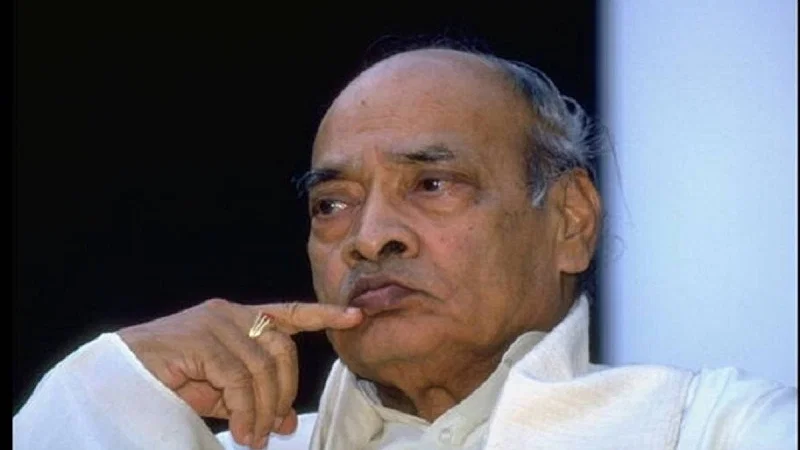
Pamulaparti Venkata Narasimha Rao (28 June 1921 – 23 December 2004) was an Indian 9th lawmaker (1991 to 1996). He was a member of the Indian National Congress party and served as the Chief Minister of Andhra Pradesh and as a Union Cabinet Minister under Prime Ministers Indira Gandhi and Rajiv Gandhi.
In 1991, after the resignation of Prime Minister Chandra Shekhar, Rao became the Prime Minister leading a minority government with the support of several regional parties. He faced many challenges during his tenure, including political instability and economic difficulties. He is widely credited with initiating economic liberalization in India, dismantling the Licence Raj, a system of bureaucratic regulations and controls that stifled economic growth, and opening up the economy to foreign investment. He also initiated the process of reforms in the Indian banking system, telecommunications and many other sectors.
Rao’s government also faced many controversies, including the Babri Masjid demolition, an event in which a 16th-century mosque in Ayodhya was destroyed by Hindu nationalist mobs, leading to widespread rioting and communal violence. Despite these challenges, Rao’s government is remembered for its efforts to modernize and liberalize the Indian economy, and for its efforts to improve relations with other countries, particularly the United States.
After losing the 1996 general elections, Rao resigned as Prime Minister, he continued to be active in politics and served as a Member of Parliament for several more terms. He died on 23 December 2004 due to a heart attack.
Also Read>>Top 5 Foreigner Indian love story and marriage
Atal Bihari Vajpayee (1996, 1998-2004)
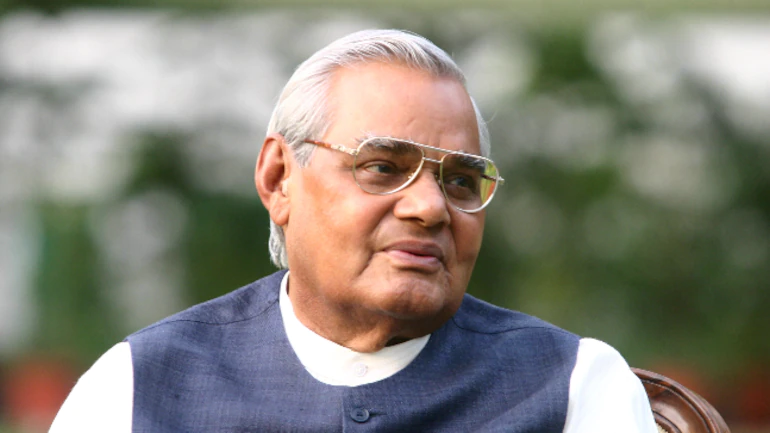
Atal Bihari Vajpayee (25 December 1924 – 16 August 2018) was an Indian politician who served as the 10th Prime Minister of India, first for a term of 13 days in 1996 and then for a full term from 1998 to 2004. He was a member of the Bharatiya Janata Party (BJP), a right-wing political party and served as the Minister of External Affairs under Prime Minister Morarji Desai.
Vajpayee first became the Prime Minister in 1996, leading a coalition government but his government was short lived and he had to resign after 13 days as he was unable to prove majority in the parliament. He again became the Prime Minister in 1998, leading a coalition government with the support of several regional parties. During his tenure, Vajpayee’s government focused on economic liberalization, infrastructure development, and efforts to improve relations with Pakistan and China. His government also initiated a number of social welfare programs, including the Sarva Shiksha Abhiyan, a program aimed at universalizing primary education in India.
Vajpayee’s government is also remembered for its efforts to improve India’s relations with other countries, particularly the United States. He also initiated the ‘Look East Policy’ which aimed to strengthen India’s relations with countries in the Asia-Pacific region.
One of the major initiatives taken by his government was the Pokhran-II nuclear test in 1998, which led to international sanctions against India but also established India as a nuclear power.
Vajpayee’s government was also marked by controversy, including the Gujarat riots of 2002, a period of communal violence in the Indian state of Gujarat. Despite these controversies, Vajpayee’s government is widely credited with stabilizing the Indian economy, and for its efforts to improve relations with other countries.
Vajpayee resigned as Prime Minister in 2004 after his coalition government lost the general elections. He continued to be active in politics and served as a Member of Parliament for several more terms. He died on August 16, 2018, due to age-related illnesses.
H. D. Deve Gowda (1996-1997)
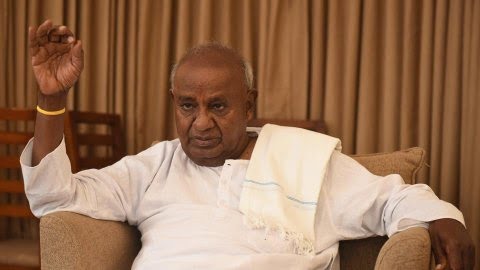
H. D. Deve Gowda (born 18 May 1933) is an Indian politician who served as the 11th Prime Minister of India, from June 1996 to April 1997. He is a member of the Janata Dal (Secular) party, a regional political party based in the southern state of KarnATAKA. Before becoming Prime Minister, he served as the Chief Minister of KarnATAKA, and as a Member of Parliament.
In 1996, Deve Gowda became the Prime Minister leading a coalition government with the support of several regional parties, after the United Front, a coalition of parties, won the general elections. His government faced many challenges during its tenure, including political instability and economic difficulties. Despite these challenges, Deve Gowda’s government is credited with initiating a number of development projects, including the Golden Quadrilateral project, which aimed to connect India’s major cities through a network of highways.
Deve Gowda’s government was also marked by controversy, including the rising tensions between coalition partners and internal dissent. Despite these controversies, his government is widely credited with stabilizing the Indian economy and for its efforts to improve relations with other countries.
Deve Gowda resigned as Prime Minister in April 1997 after his coalition government lost the support of its allies. He continued to be active in politics and served as a Member of Parliament for several more terms. He also served as the President of the Janata Dal (Secular) party. Now he is active as a Member of Parliament and also as a leader of his party.
Inder Kumar Gujral (1997-1998)
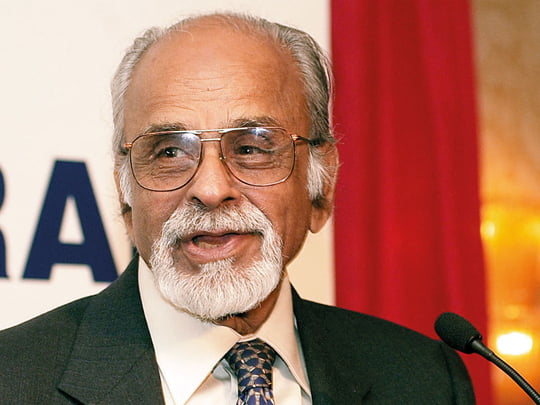
Inder Kumar Gujral (4 December 1919 – 30 November 2012) was an Indian politician who served as the 12th PM of India from (Apr 1997 to Mar 1998). He was a member of the Janata Dal party and served as the Minister of External Affairs under Prime Ministers V. P. Singh and H. D. Deve Gowda.
In 1997, Gujral became the Prime Minister leading a coalition government with the support of several regional parties, after the United Front, a coalition of parties, won the general elections. His government focused on economic liberalization, infrastructure development and efforts to improve relations with Pakistan and other neighboring countries. His government was also marked by its efforts to improve relations with other countries, particularly the United States and the Soviet Union.
One of the major initiatives taken by his government was the Gujral Doctrine, a set of principles for improving relations with India’s neighboring countries, which emphasized non-reciprocity in relations and mutual respect for each other’s territorial integrity.
Gujral’s government was also marked by controversy, including the rising tensions between coalition partners and internal dissent. Despite these controversies, his government is widely credited with stabilizing the Indian economy and for its efforts to improve relations with other countries.
Gujral resigned as Prime Minister in March 1998 after his coalition government lost the support of its allies. He continued to be active in politics and served as a Member of Parliament for several more terms. He also served as the President of the Janata Dal party. He died on November 30, 2012, due to age-related illness.
Manmohan Singh (2004-2014)
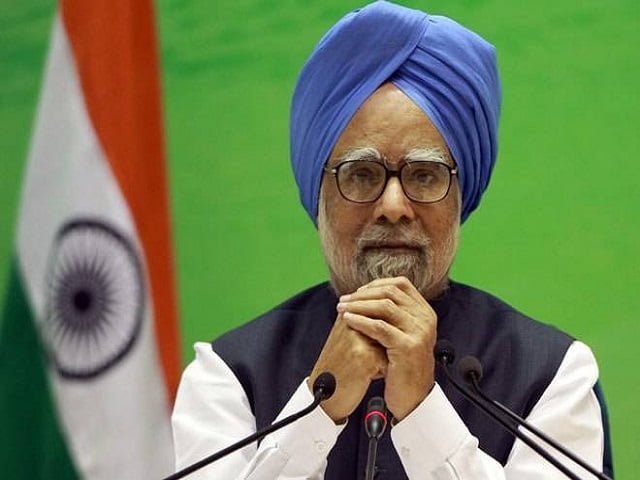
Manmohan Singh (born 26 September 1932) is an Indian economist and politician who served as the 13th PM of India (2004 -2014). He was a member of the Indian National Congress party and served as the Governor of Reserve Bank of India and as the finance minister under Prime Minister P. V. Narasimha Rao.
In 2004, Manmohan Singh became the Prime Minister leading a coalition government with the support of several regional parties, after the United Progressive Alliance (UPA) a coalition led by the Indian National Congress, won the general elections. His government focused on economic growth, poverty reduction, and infrastructure development. His government also initiated a number of social welfare programs, including the National Rural Employment Guarantee Act, which aimed to provide employment for rural households, and the Right to Information Act, which aimed to increase transparency and accountability in the government.
Manmohan Singh’s government is also remembered for its efforts to improve relations with other countries, particularly the United States, and for its efforts to address the issues of climate change and energy security.
Manmohan Singh’s government was also marked by controversy, including rising food prices, rising inflation, and several corruption scandals. Despite these controversies, his government is widely credited with stabilizing the Indian economy and for its efforts to improve relations with other countries.
Narendra Modi (26th May-incumbent)
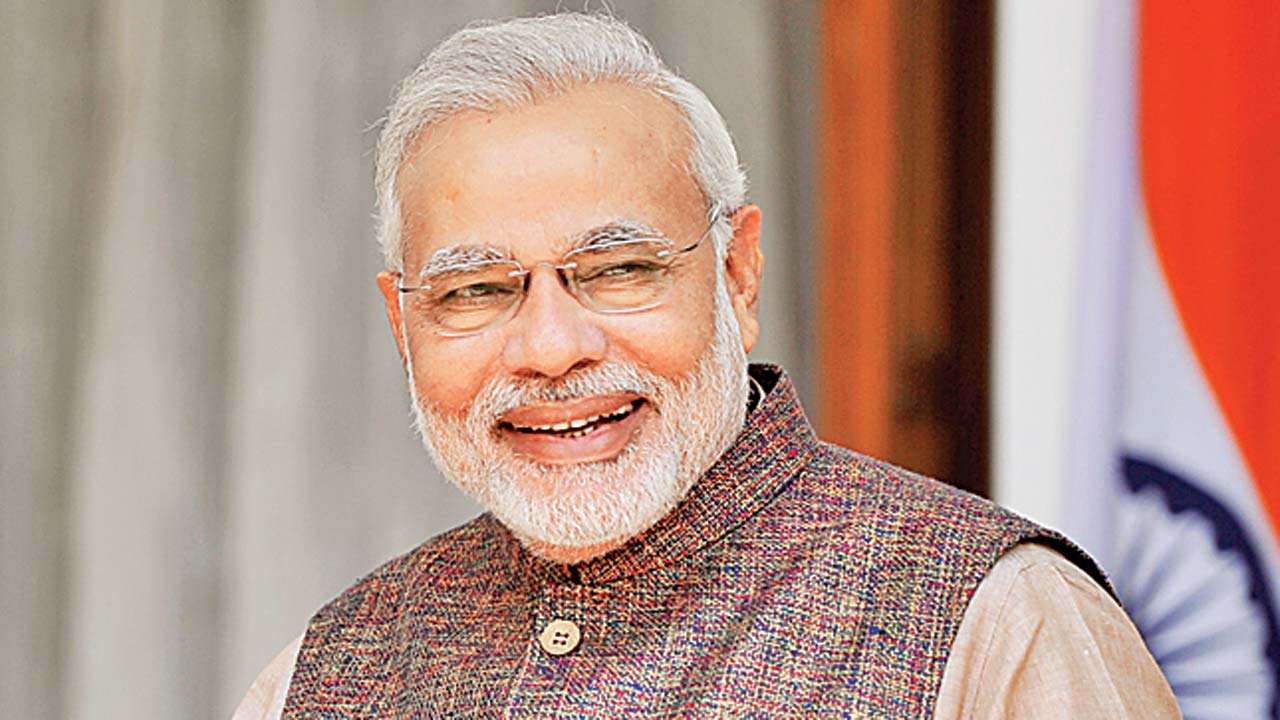
Narendra Modi (born 17 September 1950) is an Indian politician who has served as the 14th and current Prime Minister of India since 2014. He is a member of the Bharatiya Janata Party (BJP), a right-wing political party, and the Rashtriya Swayamsevak Sangh (RSS), a Hindu nationalist organization. He previously served as the Chief Minister of the Indian state of Gujarat from 2001 to 2014.Modi first came to national prominence as the Chief Minister of Gujarat, where he implemented policies aimed at attracting investment and promoting economic growth. He is credited with transforming Gujarat into one of India’s most developed states.
He was elected as the Prime Minister of India in May 2014, leading the Bharatiya Janata Party to a historic victory in the general elections.As Prime Minister, Modi has focused on economic development and job creation, through initiatives such as Make in India, Digital India, and Skill India. He has also emphasized infrastructure development, including the construction of highways, airports, and ports. He has also focused on improving relations with other countries, particularly the United States and China, and has sought to increase India’s global influence.Modi has also been known for his efforts to improve the lives of the poor and underprivileged through various welfare schemes, such as the Pradhan Mantri Jan Dhan Yojana, which aims to provide financial inclusion to the poor.
Modi’s tenure as Prime Minister has also been marked by several controversies and criticism. One of the major criticisms of his government is the handling of the economy, particularly the demonetization moves in 2016, where the government abruptly removed high-value currency notes from circulation in an effort to curb black money and corruption, which led to widespread disruptions and economic slowdown.Additionally, Modi’s government has also been criticized for its handling of the COVID-19 pandemic and the handling of farmers’ protests in 2020-2021. There have also been concerns regarding the government’s handling of civil liberties, particularly the freedom of speech and the press, as well as its handling of religious and communal tensions in the country.Despite these controversies, Modi remains a popular figure in India and is widely credited for his efforts to improve the country’s economy and infrastructure, as well as his efforts to promote India’s image on the global stage. He was re-elected as the Prime Minister in 2019 and continues to serve in that role.
Also Read>> List of Prime Ministers of India (1947-1990) and Their Journey
Also Read>>These are the 10 most Powerful women in Indian politics
